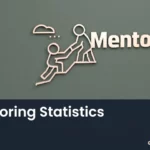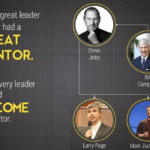
The modern workplace spans multiple generations, with Baby Boomers, Gen X, Millennials, and Gen Z working side by side. Bridging the generational gap through effective leadership and mentoring, especially online, is essential for creating a cohesive, innovative work environment. This requires understanding generational differences, using the right tools, and fostering trust through communication and collaboration.
Understanding Generational Differences
Characteristics of Gen Z and Millennials
Millennials and Gen Z are digital natives who value flexibility, purpose-driven work, and collaboration. In contrast, Baby Boomers and Gen X often favor stability and structure. Millennials tend to embrace teamwork and open communication, while Gen Z, slightly more independent, seeks personal growth and innovation.
Bridging the Gap
Misconceptions about younger generations, such as a lack of dedication and loyalty, often stem from different work priorities. Leaders can bridge this gap by recognizing the value of each generation’s perspective. Collaboration through mentoring programs that foster knowledge exchange can help break down barriers and foster mutual respect.
The Role of Online Tools in Mentoring
Digital Platforms for Mentorship
Platforms like Zoom, Slack, and Microsoft Teams have revolutionized mentoring, making it accessible regardless of location. These tools, along with employee engagement software, enable real-time communication, resource sharing, and feedback, crucial to building strong mentoring relationships across generations.
Benefits and Challenges of Virtual Mentoring
Virtual mentoring offers flexibility but presents challenges, such as establishing trust without in-person interaction. Mentors can overcome this by being consistent, setting clear expectations, and maintaining regular check-ins, ensuring that working relationships remain strong and productive.
Effective Communication Strategies
Adapting to Different Styles
Generational differences often manifest in communication preferences. Millennials and Gen Z prefer digital, fast-paced interactions, while older generations may value more direct, face-to-face conversations. Leaders should adapt their communication methods to suit the preferences of all team members.
Feedback and Coaching
Millennials and Gen Z appreciate immediate, constructive feedback, whereas older generations may expect more formal reviews. Leaders must balance real-time feedback with structured performance reviews to meet the needs of all employees.
Building Trust and Relationships
Establishing Trust in Mentorship
Trust is the foundation of any successful mentoring relationship. Younger employees often value transparency and personal engagement. Leaders can build trust by showing a genuine interest in their mentees’ growth and creating a safe environment for open communication.
Fostering Inclusion Across Generations
Building relationships across generational lines requires leaders to encourage inclusivity. Activities that promote cross-generational collaboration and understanding can strengthen bonds and create a workplace where everyone feels valued, regardless of age or experience.
Leveraging Technology for Learning and Development
Benefits of Online Learning
Online learning platforms align well with Millennials and Gen Z’s preferences, offering flexibility and self-directed development. Leaders should encourage the utilization of these tools while guiding to ensure employees stay engaged and focused, which are some of the benefits of a leadership development program.
Creating a Culture of Continuous Learning
Leaders play a crucial role in promoting a culture of continuous learning. By supporting employees in their personal and professional development through mentorship and accessible learning platforms, organizations can foster a mindset of growth and adaptability.
Addressing Generational Conflict
Resolving Generational Disputes
Generational conflict often arises from misunderstandings about work styles or communication. Leaders can mediate these conflicts by promoting open dialogue and helping teams find common ground through shared goals and mutual respect. Some effective ways to help improve team happiness and productivity go a long way.
Encouraging Empathy and Understanding
To minimize conflicts, leaders should promote empathy across generations. Encouraging employees to understand and appreciate the different perspectives that each generation brings to the table enhances collaboration and reduces tension.
Mentoring for Career Advancement
Benefits of Mentoring for Young Professionals
Mentoring is a key tool for career advancement, especially for younger professionals. A strong mentor can provide guidance, feedback, and networking opportunities that help mentees grow and advance in their careers.
Overcoming Challenges in Mentorship
Challenges in mentorship, such as time constraints or mismatched expectations, can be addressed by setting clear goals and maintaining regular communication. This ensures that both mentor and mentee benefit from the relationship and that career development remains on track.
The Role of Diversity and Inclusion
Promoting Generational Understanding
Diversity and inclusion initiatives are essential for bridging generational divides. Leaders can foster greater collaboration and innovation by encouraging a workplace that values diverse perspectives, including those of different ages.
Breaking Down Stereotypes
Leaders play a key role in breaking down stereotypes associated with different generations. By promoting an inclusive, respectful workplace, leaders can ensure that all employees feel valued for their contributions, regardless of age. For those interested in a more formal and structured approach, the top organizational leadership PhD programs might be worth looking into.
Bridging the generational gap through online leadership and mentoring is essential for creating an inclusive, collaborative workplace. By understanding generational differences, leveraging digital tools, and fostering trust, leaders can help their teams thrive. In today’s evolving work environment, promoting cross-generational collaboration enhances individual development and drives organizational success.


